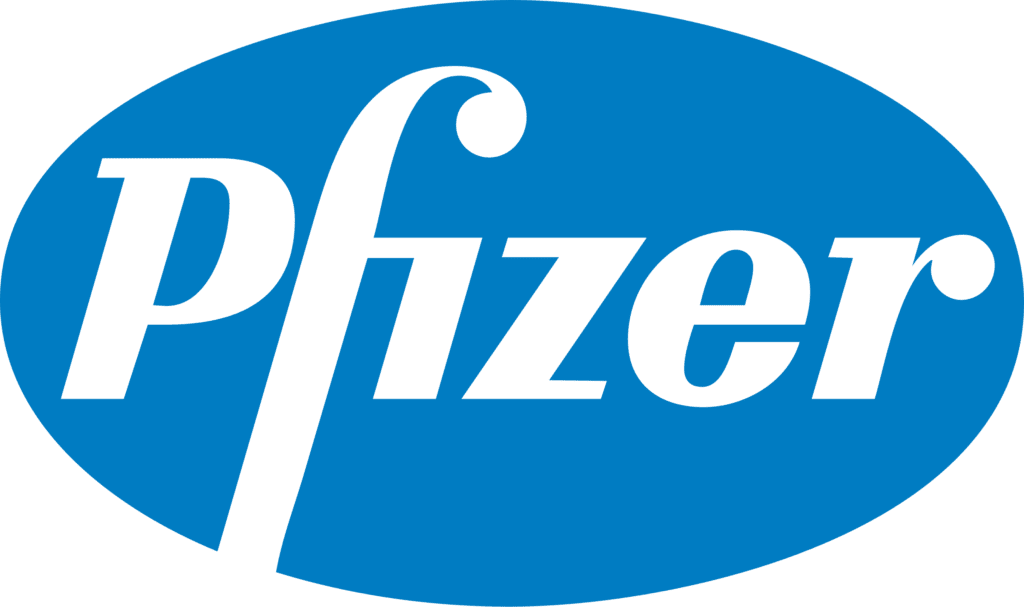The pharmaceutical industry is a thriving sector that offers a wide range of career opportunities for individuals with diverse skill sets. But just how many jobs are available in major pharmaceuticals?
There are currently over 300,000 jobs available in major pharmaceuticals, in the United States.
In this article, we will discuss whether major pharmaceuticals is a good career path, and provide valuable insights into the various job roles, top-paying positions, and leading companies in the industry. We’ll also share tips on how to get a job in this competitive field and address the question of whether pharmaceuticals is a hard major.
- How many people work in Pharmaceuticals?
- Is major pharmaceuticals a good career path?
- List of jobs in the pharmaceutical industry
- Best paying jobs in major pharmaceuticals
- List of pharmaceutical companies
- 3 largest major pharmaceuticals companies in the US
- How to get a job in the pharmaceutical industry?
- Is pharmaceuticals a hard major?
- Conclusion
How many people work in Pharmaceuticals?
Globally, the pharmaceutical industry supports millions of professionals, with the United States standing as a prominent player. As per the Bureau of Labor Statistics, in 2022, around 331,000 individuals were working in the pharmaceutical and medicine manufacturing sector in the US alone. The industry is anticipated to experience consistent growth in the upcoming years, presenting a multitude of job openings for driven candidates.


Is major pharmaceuticals a good career path?
Embarking on a career in major pharmaceuticals can be extremely fulfilling, both professionally and financially. The industry provides:
Diverse career paths: With an array of roles available, spanning from research and development to sales and marketing, there is a position suitable for every interest and skill set.
Competitive pay: Leading pharmaceutical firms frequently offer appealing compensation packages, inclusive of bonuses and benefits.
Job security: The pharmaceutical sector is less susceptible to economic downturns compared to other industries, ensuring better job stability.
Opportunities for personal and professional growth: The industry emphasizes ongoing learning and development, enabling professionals to refine their skills and progress in their careers.


List of jobs in the pharmaceutical industry
There are numerous job roles available within the pharmaceutical sector, catering to different educational backgrounds and skill sets. Some of the common positions include:
- Research Scientist
- Clinical Research Associate
- Regulatory Affairs Specialist
- Medical Science Liaison
- Pharmaceutical Sales Representative
- Quality Assurance Analyst
- Pharmacist
- Biomedical Engineer
- Biochemist
- Pharmaceutical Manufacturing Technician
Best paying jobs in major pharmaceuticals
In the pharmaceutical industry, there are several high-paying positions that cater to various skills and educational backgrounds. Below, we’ve listed some of the best-paying jobs in major pharmaceuticals, along with a brief description of their responsibilities and the average annual salary for each role in the United States.
Pharma Sales Team Leader
A Pharma Sales Team Leader is in charge of supervising a group of sales representatives and handling important accounts. Their main goal is to increase sales of the company’s products and maintain solid relationships with healthcare professionals and organizations. They frequently collaborate with marketing departments to create strategies and promotional content.
In the United States, a Pharma Sales Team Leader typically earns around $130,000 per year, with the possibility of additional income through bonuses and commissions based on their performance.


Drug Discovery Researcher
Drug Discovery Researchers are at the cutting edge of identifying and developing new medications, performing experiments, and analyzing data to create groundbreaking treatments for various illnesses. They might focus on specific fields such as medicinal chemistry, pharmacology, or molecular biology. These researchers often work with other scientists both within and outside their organization to advance their projects.
In the US pharmaceutical sector, a Drug Discovery Researcher’s average annual salary is about $95,000, with more experienced and specialized professionals potentially earning more.
Healthcare Science Liaison
Healthcare Science Liaisons serve as intermediaries between pharmaceutical companies and healthcare professionals, disseminating scientific information and insights about the company’s products. They are responsible for building and maintaining relationships with influential figures in the medical community, educating them on new treatments, and addressing questions about the safety and effectiveness of their products.
Healthcare Science Liaisons usually possess advanced degrees like a Ph.D., Pharm.D., or M.D. In the United States, their average annual salary is around $130,000, with experienced professionals potentially earning more.


Compliance and Regulatory Manager
Compliance and Regulatory Managers are crucial in ensuring that pharmaceutical products are developed, manufactured, and distributed in accordance with regulatory guidelines. They collaborate with internal teams and regulatory authorities, such as the FDA, to prepare and submit documentation for product approvals and maintain compliance throughout the product’s lifecycle.
In the United States, a Compliance and Regulatory Manager’s average annual salary is roughly $110,000.
Pharmaceutical Production Supervisor
Pharmaceutical Production Supervisors are responsible for overseeing the manufacturing process of pharmaceutical products. They ensure that they adhere to quality standards and regulatory guidelines. They also manage teams, optimize production processes, and establish quality control measures. Their role is vital in guaranteeing the safety, effectiveness, and availability of medications for patients.
In the US, a Pharmaceutical Production Supervisor’s average annual salary is around $120,000.


These roles exemplify some of the highest-paying positions in the pharmaceutical sector. It’s important to note though, salaries can differ based on factors like experience, education, company size, and geographical location.
List of pharmaceutical companies
There are numerous pharmaceutical companies operating across the globe, ranging from large multinational corporations to smaller, specialized firms. Some of the well-known names in the industry include:
- Pfizer
- Johnson & Johnson
- Novartis
- Roche
- Merck
- AstraZeneca
- GlaxoSmithKline
- Sanofi
- AbbVie
- Bristol-Myers Squibb
3 largest major pharmaceuticals companies in the US
The United States is home to some of the world’s leading pharmaceutical companies, contributing significantly to the global market. The three largest major pharmaceutical companies in the US are:
1. Pfizer
Headquartered in New York, Pfizer is one of the world’s largest pharmaceutical companies, known for its innovative drugs and vaccines, including the COVID-19 vaccine.


2. Johnson & Johnson
A household name, Johnson & Johnson is a multinational corporation based in New Jersey, with a diverse portfolio of healthcare products, including pharmaceuticals, medical devices, and consumer health products.


3. Merck
Also known as MSD outside of the United States and Canada, Merck is a leading global pharmaceutical company with a strong focus on research and development, headquartered in New Jersey.


These top companies offer a plethora of job opportunities for aspiring candidates across various roles in the pharmaceutical sector.
How to get a job in the pharmaceutical industry?
Getting a job in the pharmaceutical industry can be competitive, but with the right approach and preparation, you can enhance your chances of landing a position. Here are some tips to help you get started:
Acquire relevant education
Depending on the role you are interested in, you may need a degree in a relevant field such as pharmacy, chemistry, biology, or engineering. Some positions, such as Medical Science Liaisons, may require advanced degrees (e.g., a Ph.D. or Pharm.D.).
Gain experience
Hands-on experience is invaluable in the pharmaceutical industry. Look for internships, co-op programs, or entry-level positions in your area of interest to build your skills and gain practical knowledge.
Network
Networking is key to discovering job opportunities and making valuable connections in the industry. Attend industry conferences, career fairs, and other events, and join professional associations to expand your network.


Leverage online job search tools
Use job search engines and online job boards to find open positions in the pharmaceutical industry. LinkedIn is another valuable resource for discovering job openings and connecting with industry professionals.
Tailor your resume and cover letter
Customize your resume and cover letter for each job application, highlighting your relevant skills, education, and experience. This will help you stand out from other applicants and demonstrate your genuine interest in the position.
Is pharmaceuticals a hard major?
Pursuing a major in pharmaceuticals can be challenging but rewarding. The difficulty level of this major depends on your aptitude and interest in the subjects covered, which typically include chemistry, biology, and mathematics. This is in addition to courses specific to the pharmaceutical industry, such as pharmacology and drug development.


Here are some factors to consider when determining if pharmaceuticals is the right major for you:
- Interest in science and healthcare: If you have a passion for science and a desire to make a positive impact on healthcare, a pharmaceuticals major may be a suitable choice for you.
- Problem-solving and critical-thinking skills: Success in this major requires strong problem-solving and critical-thinking abilities, as you will need to analyze complex data and develop innovative solutions.
- Attention to detail: The pharmaceutical industry demands a high level of precision and attention to detail, as errors can have significant consequences on patient safety and product efficacy.
Conclusion
In conclusion, the pharmaceutical industry offers a wealth of job opportunities for individuals with varying skill sets and interests. As the sector continues to grow and evolve, fueled by groundbreaking research and innovative technologies, the number of available jobs in major pharmaceuticals is expected to rise. This industry not only presents diverse career paths and competitive salaries but also allows professionals to contribute meaningfully to society by advancing healthcare and improving patients’ lives.
By pursuing the right education, gaining relevant experience, and leveraging networking opportunities, aspiring candidates can successfully navigate this thriving field and find rewarding careers in major pharmaceuticals. Ultimately, the pharmaceutical industry serves as a testament to the power of human ingenuity, and those who embark on this journey will play a vital role in shaping the future of global health.

